Depending on what elements are required for a particular product, most presses can be designed with specific compounds in mind. Read More…
The hydraulic press industry is competitive, but in a sea of competitors, we are among the best! We offer ISO 9000:2000 certification, and we work with customers to create the ideal designs for their unique circumstances.
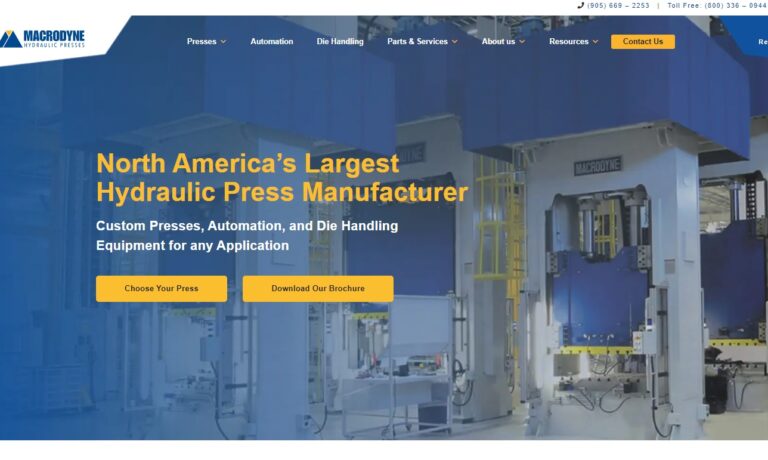
When it comes to the hydraulic press industry, you want nothing but the very best! We have over 50 years of experience in the industry manufacturing quality products for our customers.
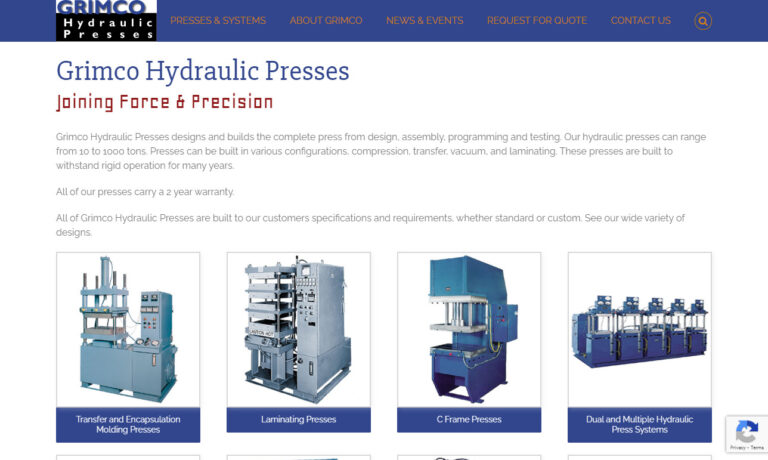
Our hydraulic press designs are one-of-a-kind. We work with our customers to determine the best hydraulic presses for their applications. Here at Savage Engineering & Sales, Inc. we take customer satisfaction very seriously.
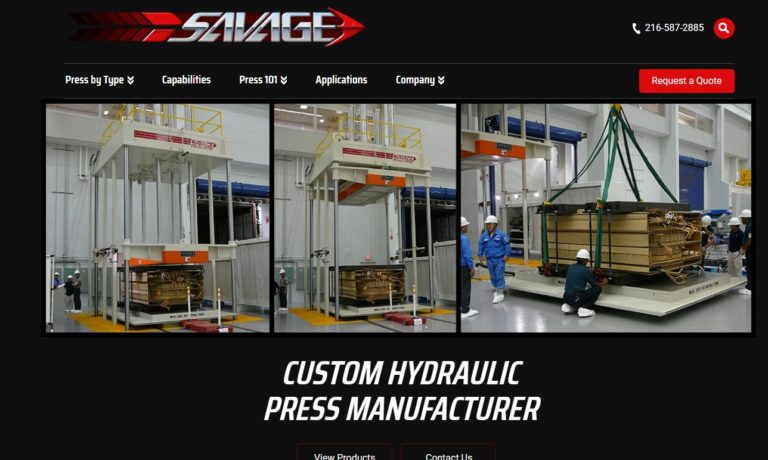
At SIMPAC America Co. Ltd., we are at the forefront of precision engineering and innovative solutions in the field of mechanical presses, servo presses, and hydraulic presses. With a commitment to excellence and a rich legacy spanning several decades, we have established ourselves as a trusted name in the manufacturing industry. SIMPAC America offers a comprehensive range of mechanical presses...
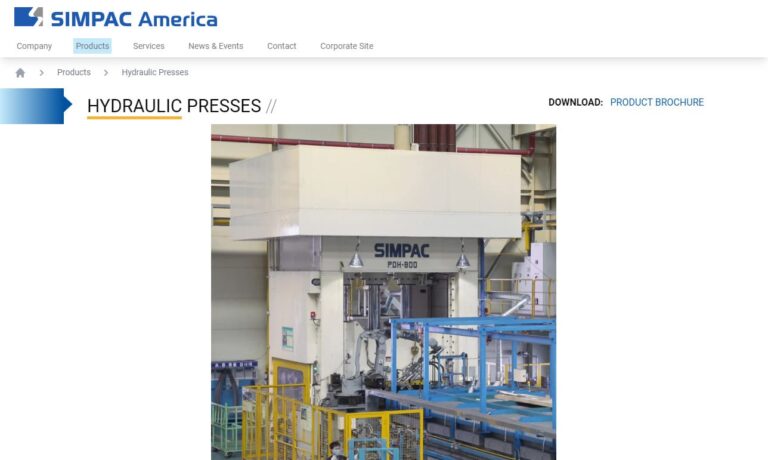
Air-Hydraulics is a manufacturer of air presses and a variety of hydraulic presses, including pneumatic air presses, power presses, hydraulic press stamping and assembly presses. We are ISO 9001:2000 certified and have been designing press machinery for metal forming and stamping since 1945.
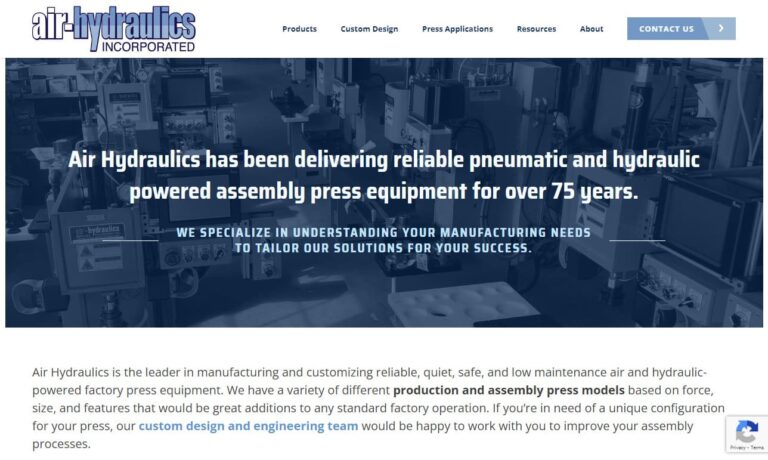
More Compression Press Manufacturers
There are many different types of hydraulic presses, one of which is the compression press. Similar to the processes found in rubber molding and injection molded plastics industries, compression molding presses are designed to produce mass amounts of consistently shaped products.
Though compression presses may be ideal for manufacturing tight-fitting products such as extruded rubber seals and stoppers, they are also found to be quite helpful within the automotive industry, since they can produce many car parts such as fenders and car hoods.
Other products that come out of these presses include plastic cases, electrical equipment and all kinds of toys for children.
No matter what the application, however, compression presses are capable of handling large product runs for a variety of industries and can also complete jobs within a short amount of time. Whether its seals, hoods, toys or anything else, most products that come out of this process have a relatively smooth surface, which is another added benefit to this type of molding.
Typical materials used in compression presses include plastic compounds, rubber and metal alloys. Some specific examples include Polyester, Vinyl, Torlon, Vespel, Poly P-phenylene sulfide and various forms of PEEK.
Though compression presses have the ability to mold different metal alloys, a better option for most iron, steel and aluminum molding would involve the use of forging presses. In any case, since all compounds mold differently, it is important to keep in mind the amount of material used when working with a compression press.
It is also equally important to pay attention to temperature and force so as to ensure that the end product maintains the desired texture and form.
In contrast to their ability to produce a wide variety of products from an assortment of different materials, compression presses bring reduction to parts replacement, downtime and noise. This is possible because molds are reusable, machines can continue to run without interruption and whereas former molding processes generated fair volumes of noise, the process used with these presses is much quieter.

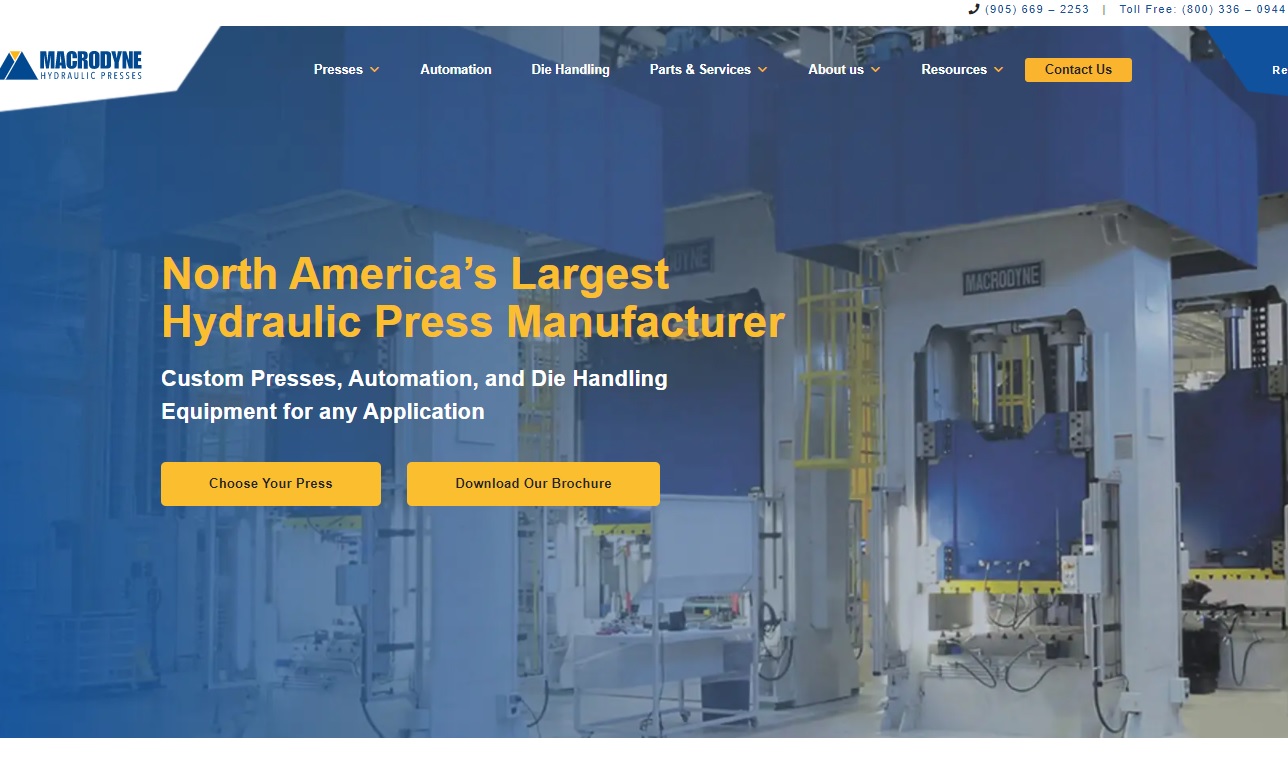
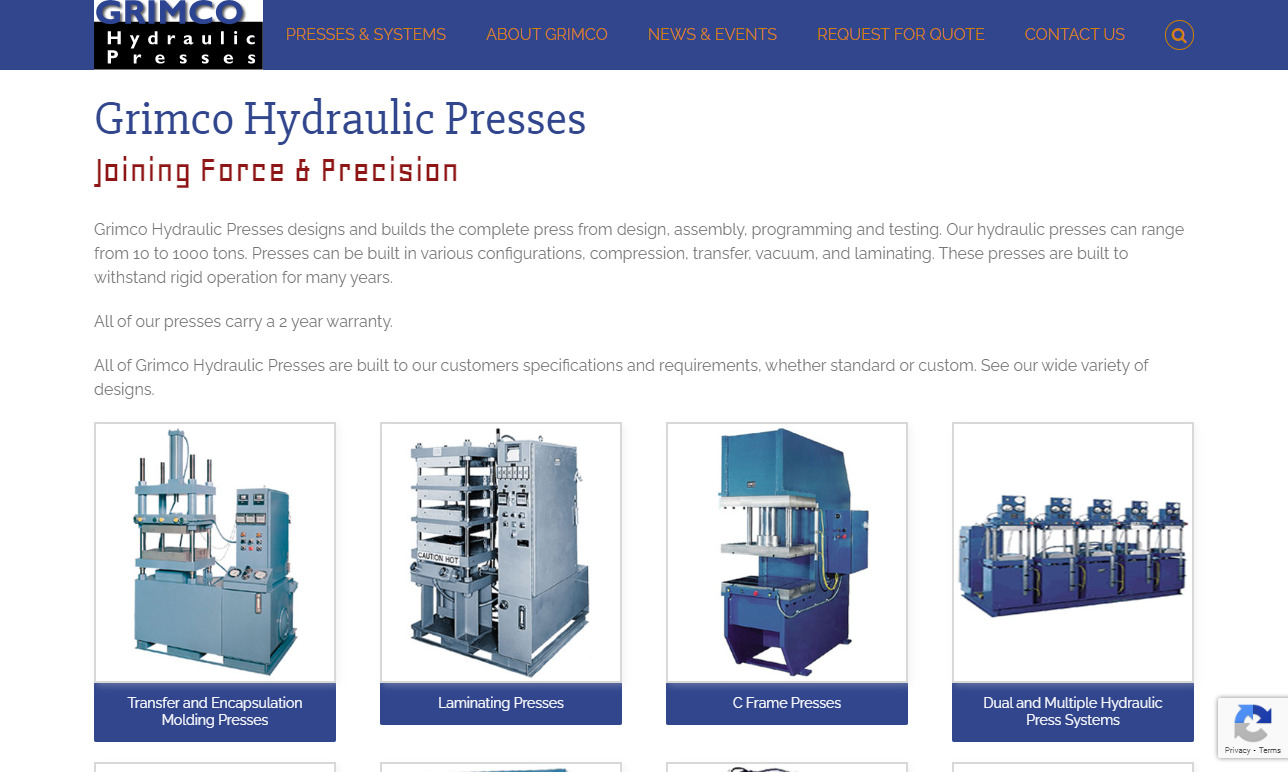
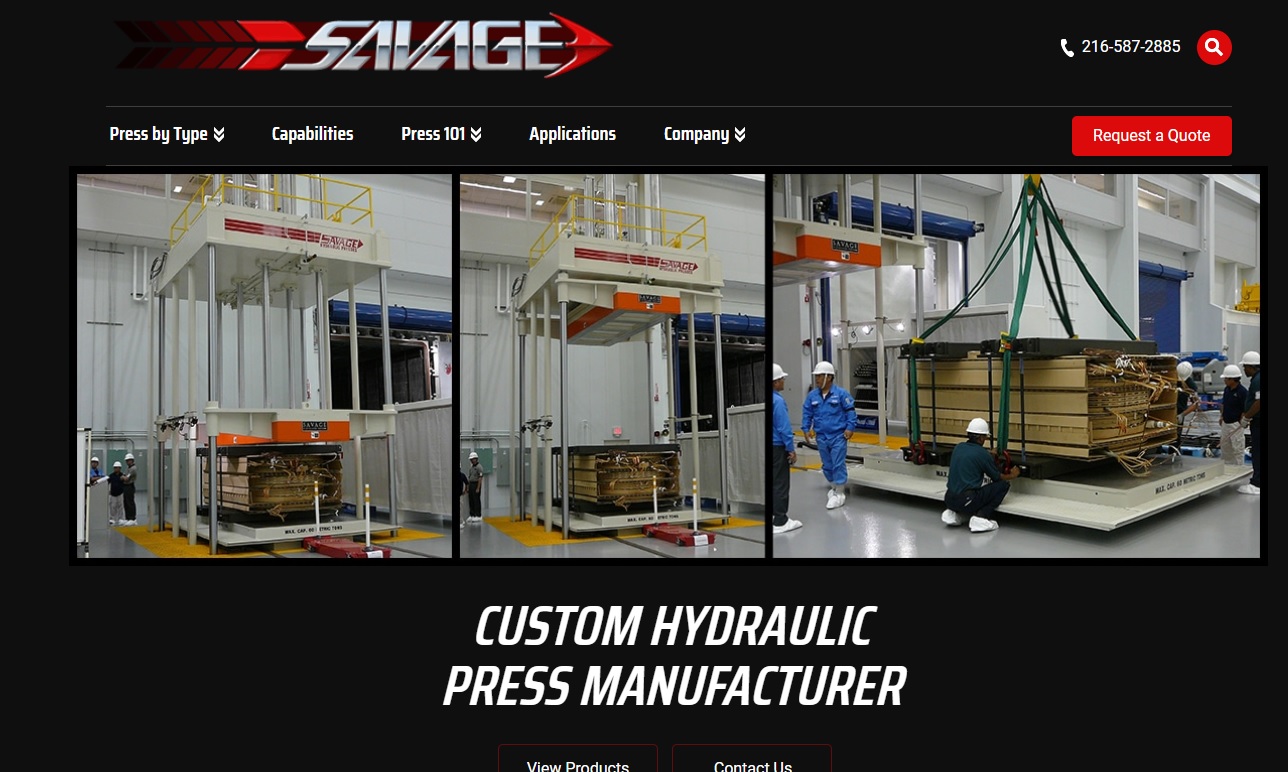
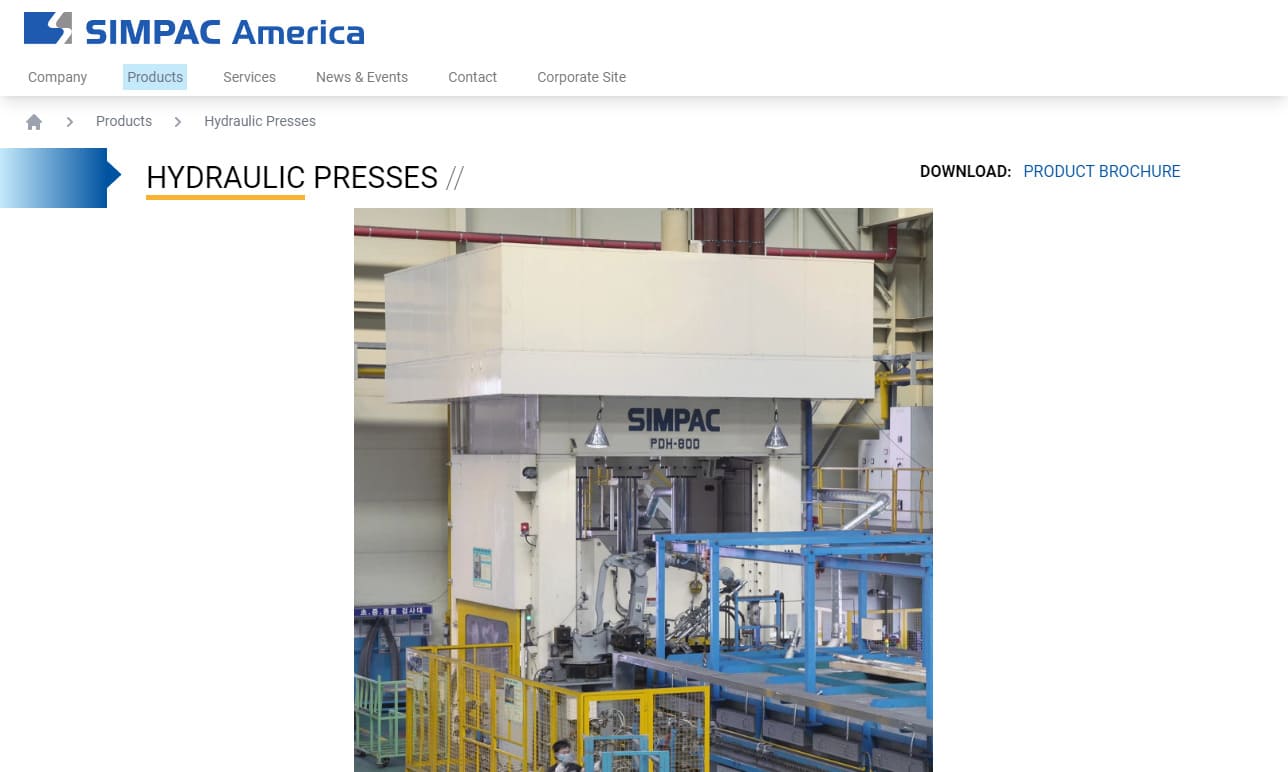
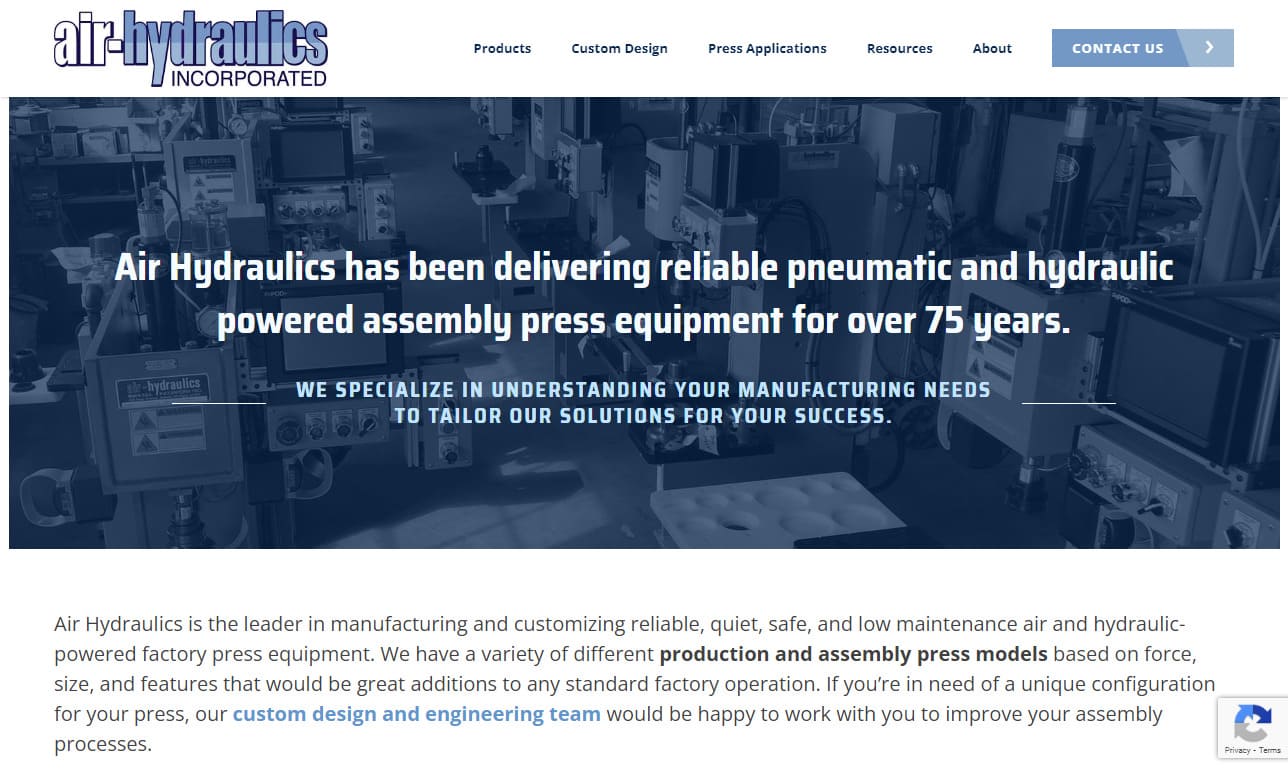
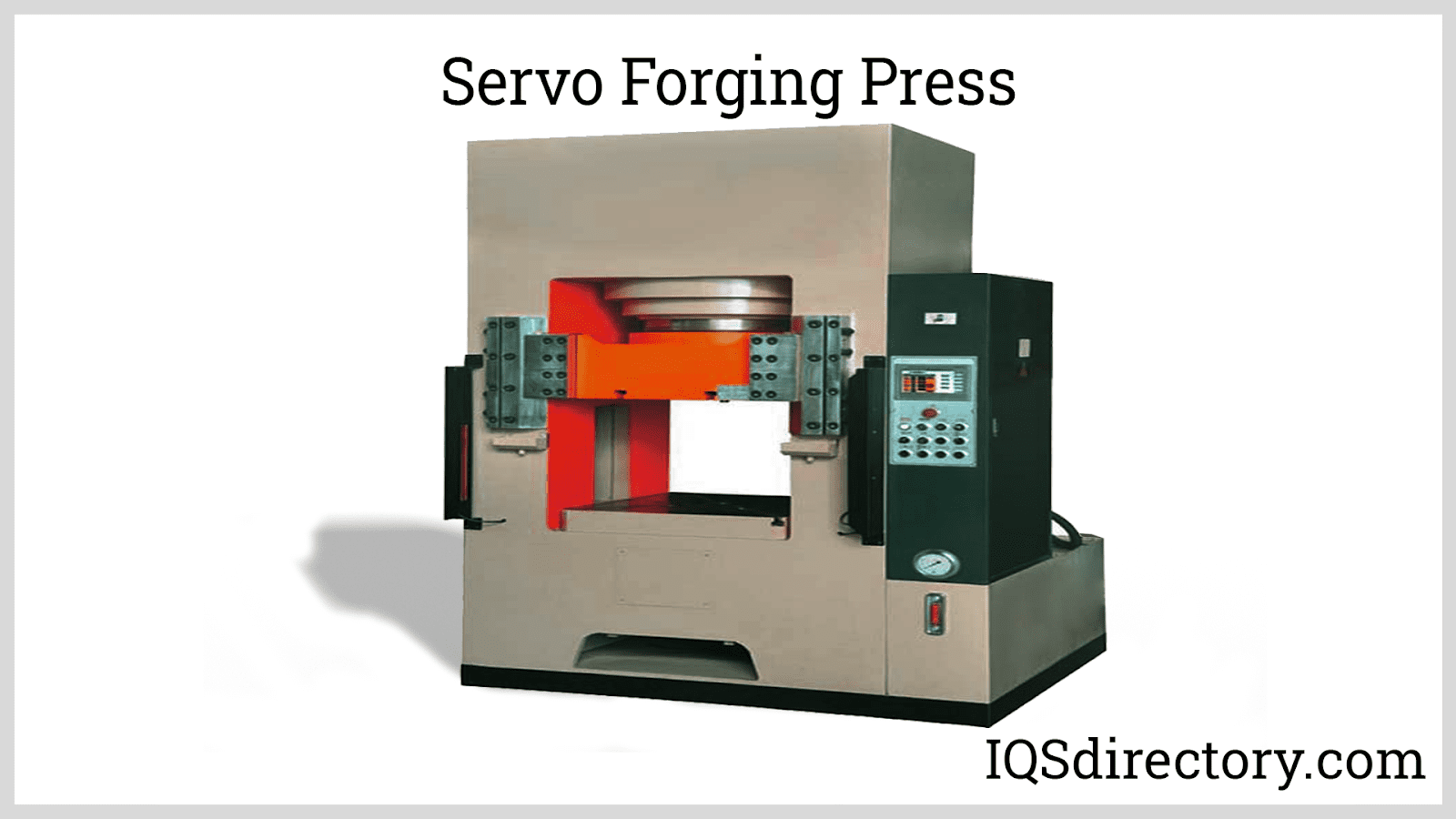
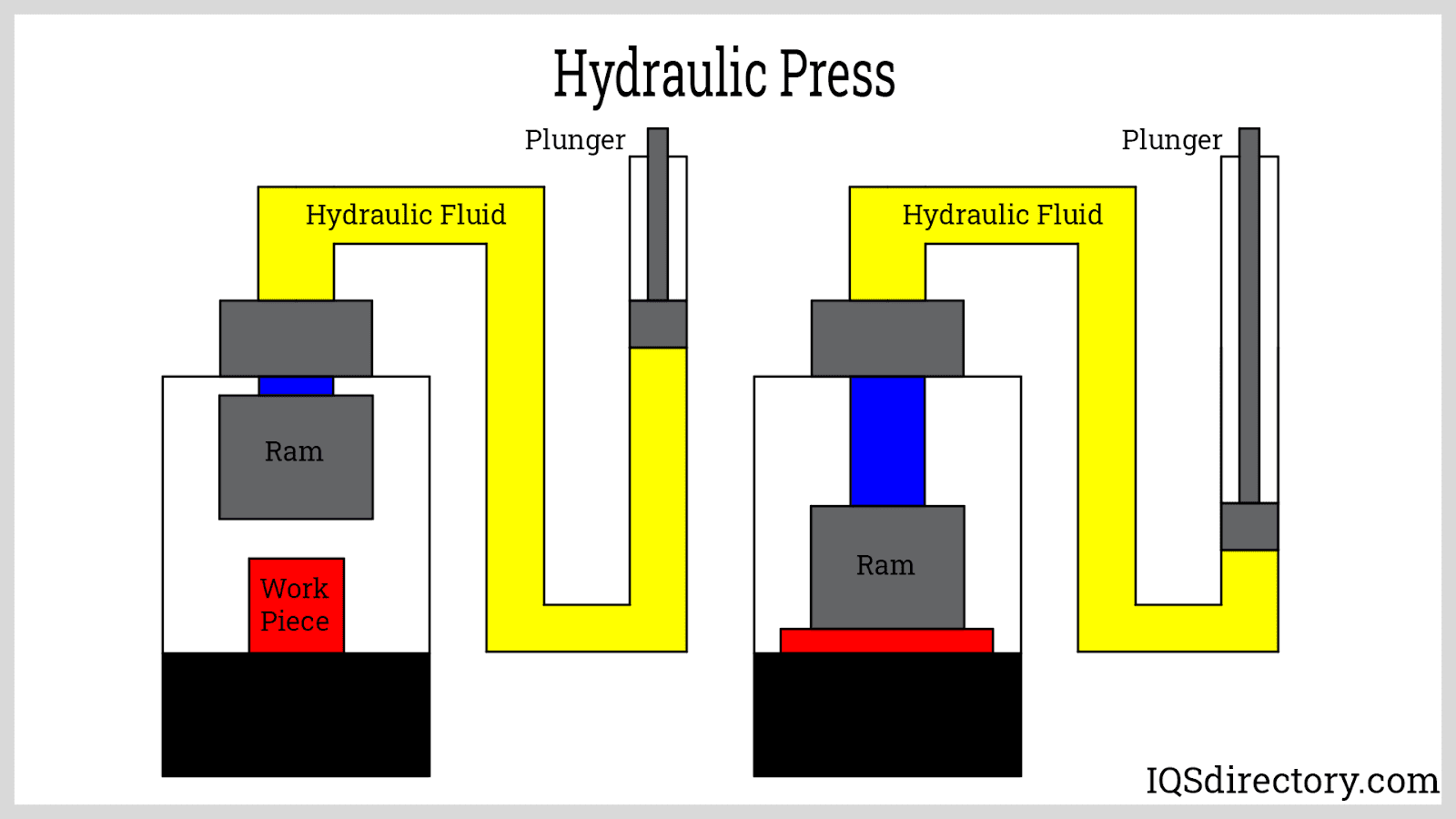
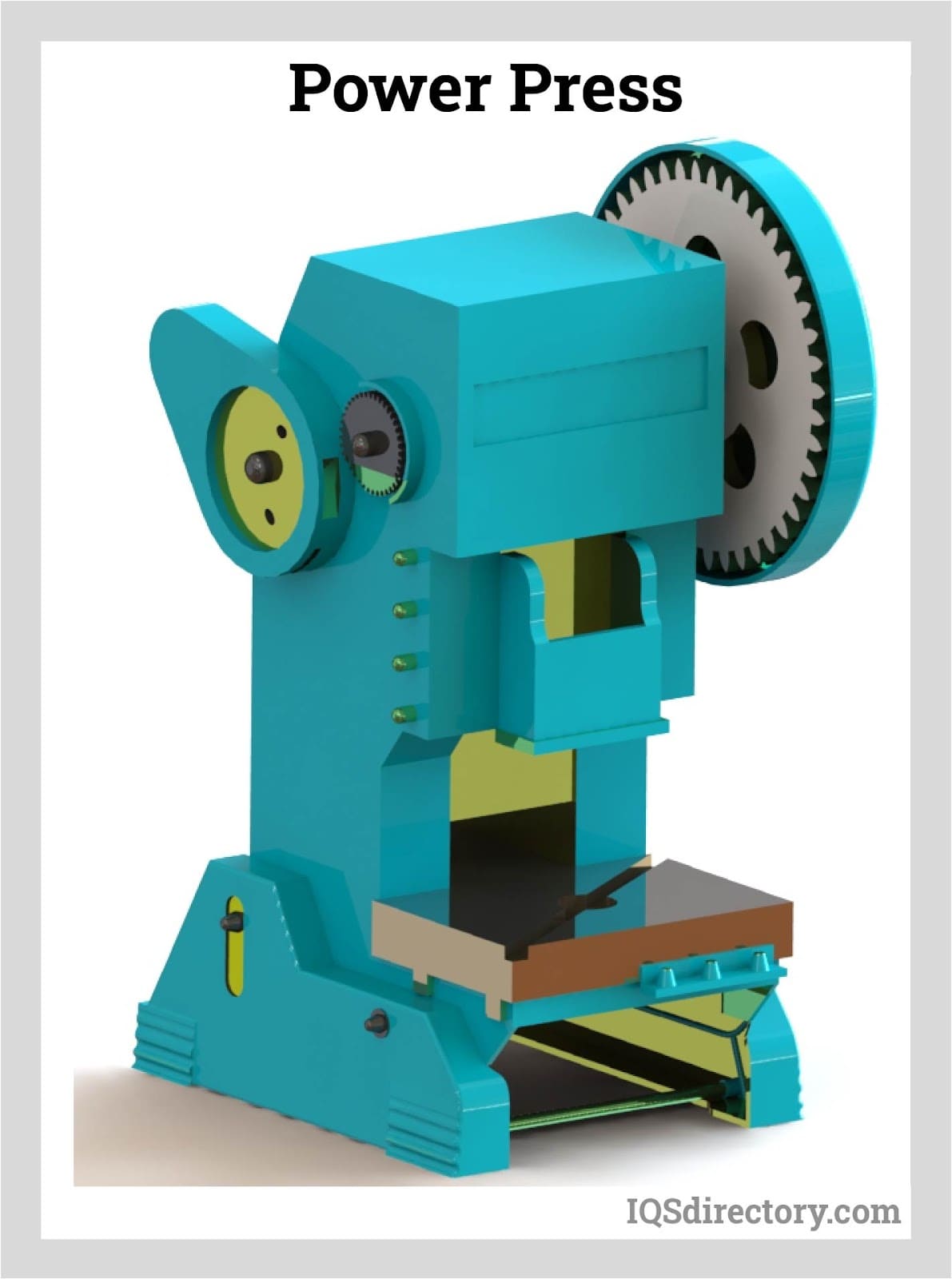
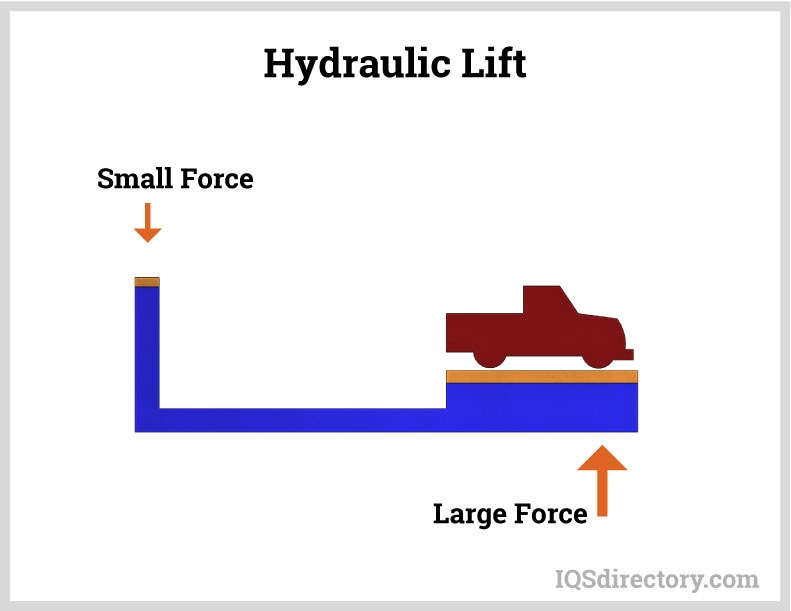
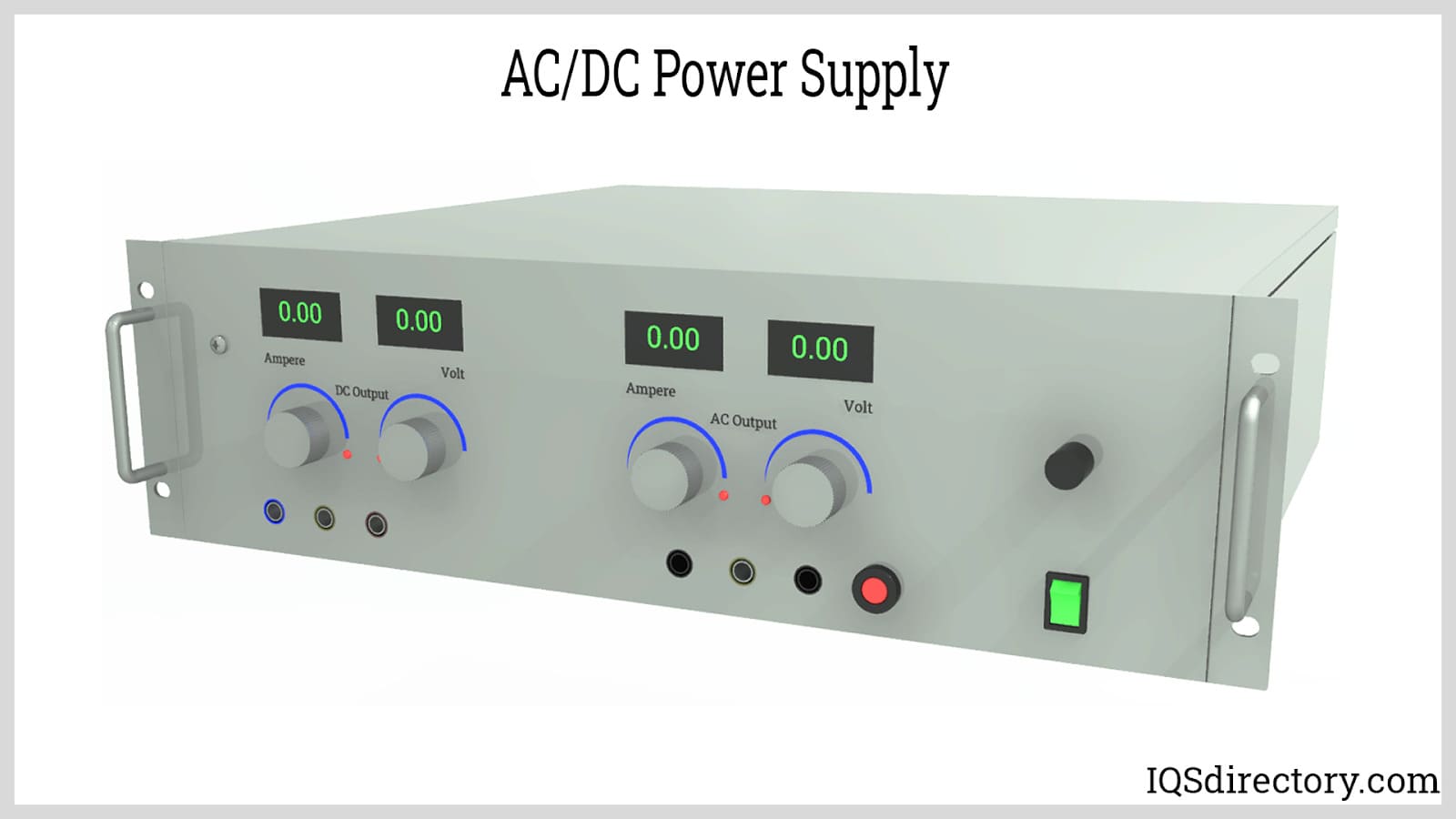
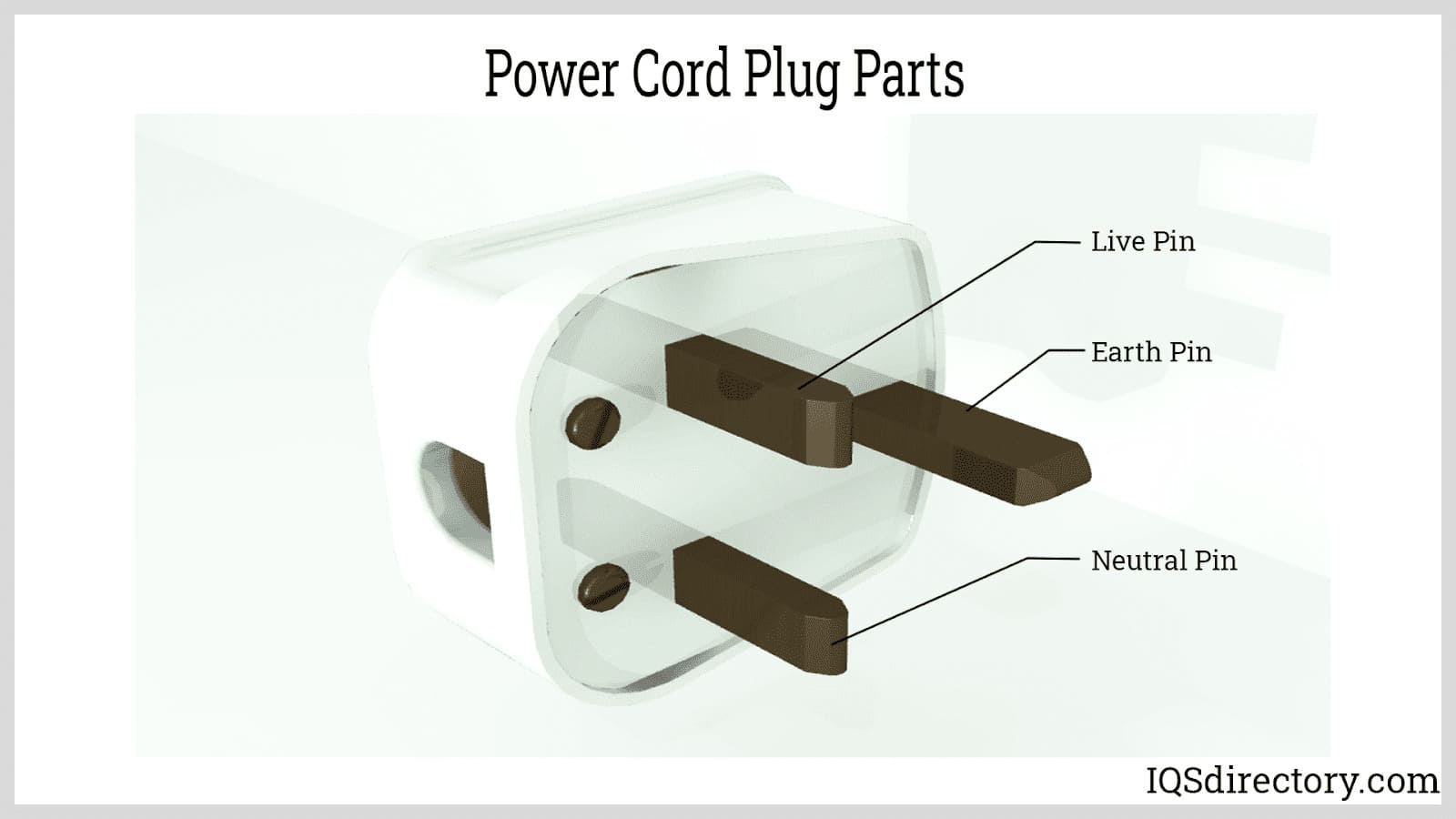
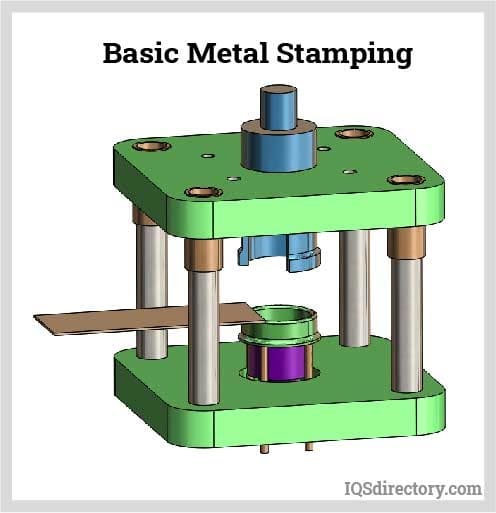
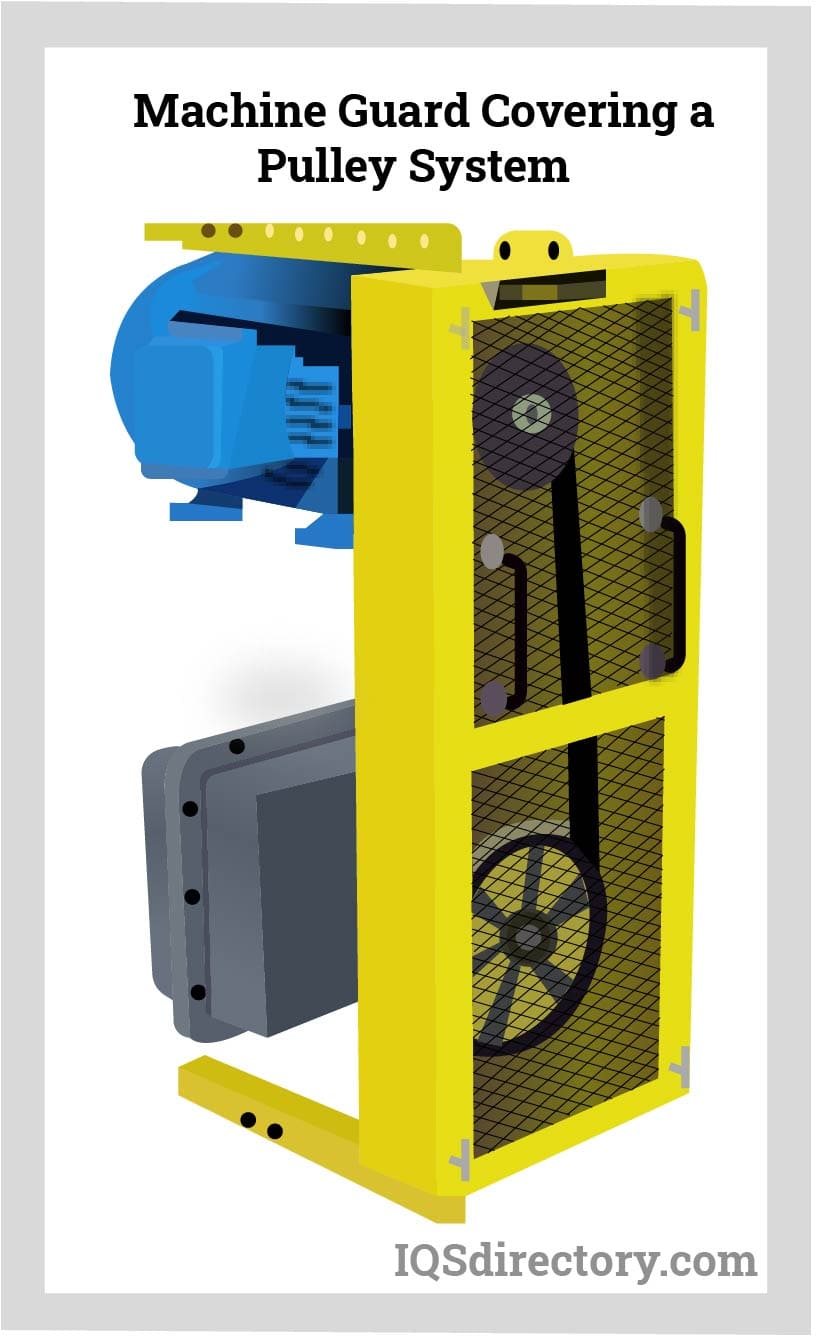
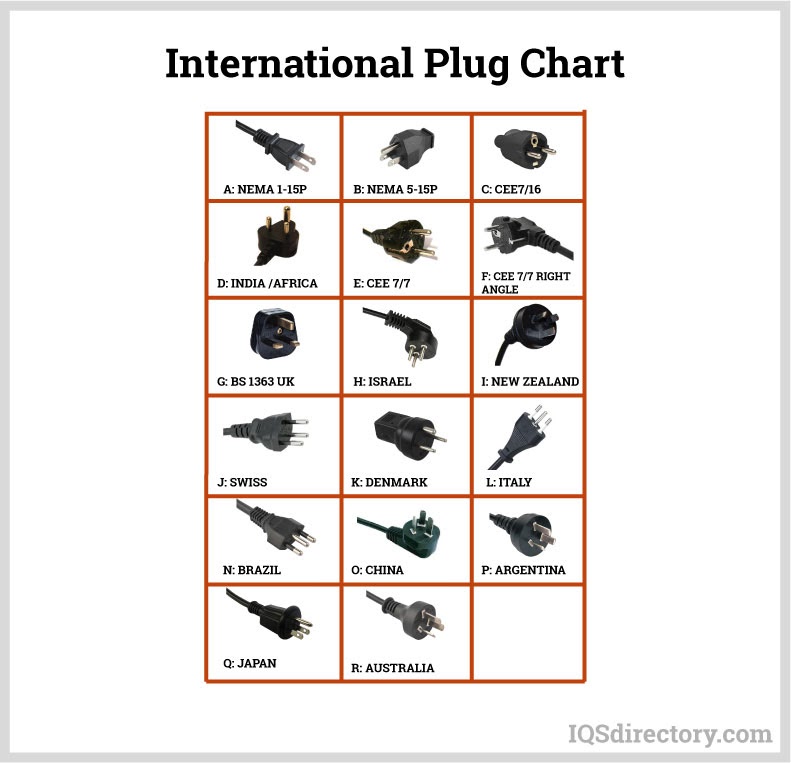
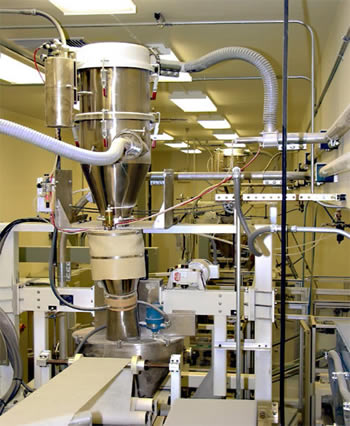 Automation Equipment
Automation Equipment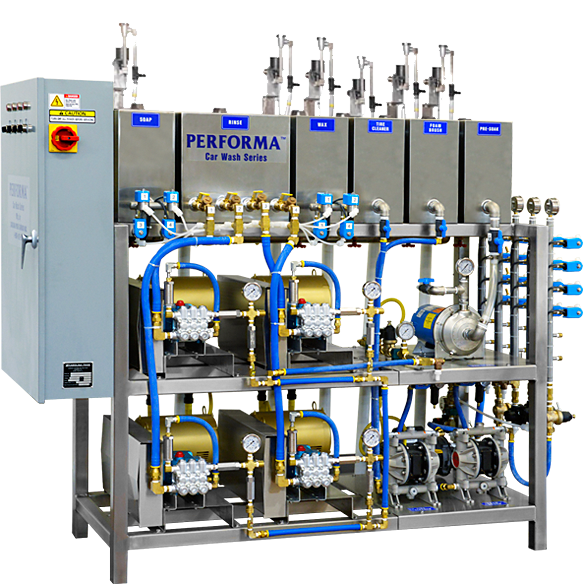 Car Wash Equipment
Car Wash Equipment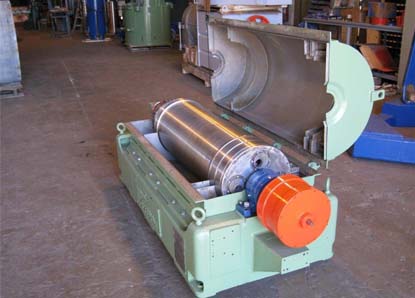 Centrifuges
Centrifuges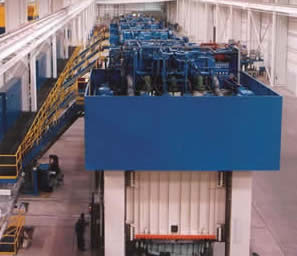 Hydraulic Presses
Hydraulic Presses Lasers
Lasers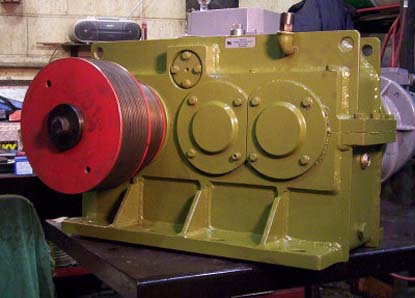 Machinery Rebuilders
Machinery Rebuilders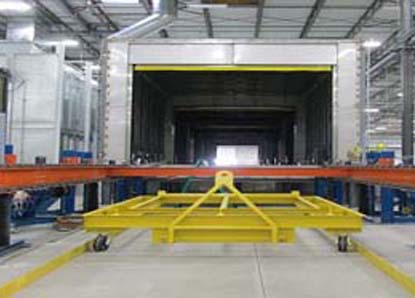 Paint Finishing Equipment
Paint Finishing Equipment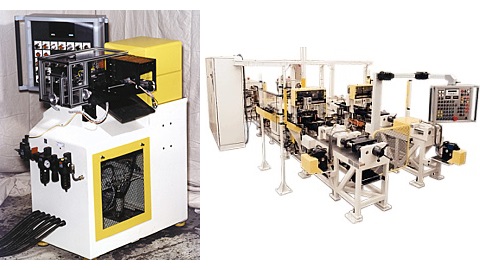 Tube Forming Machines
Tube Forming Machines Castings & Forgings
Castings & Forgings Bulk Material Handling
Bulk Material Handling Electrical & Electronic Components
Electrical & Electronic Components Flow Instrumentation
Flow Instrumentation Hardware
Hardware Material Handling Equipment
Material Handling Equipment Metal Cutting Services
Metal Cutting Services Metal Forming Services
Metal Forming Services Metal Suppliers
Metal Suppliers Motion Control Products
Motion Control Products Plant & Facility Equipment
Plant & Facility Equipment Plant & Facility Supplies
Plant & Facility Supplies Plastic Molding Processes
Plastic Molding Processes Pumps & Valves
Pumps & Valves Recycling Equipment
Recycling Equipment Rubber Products & Services
Rubber Products & Services